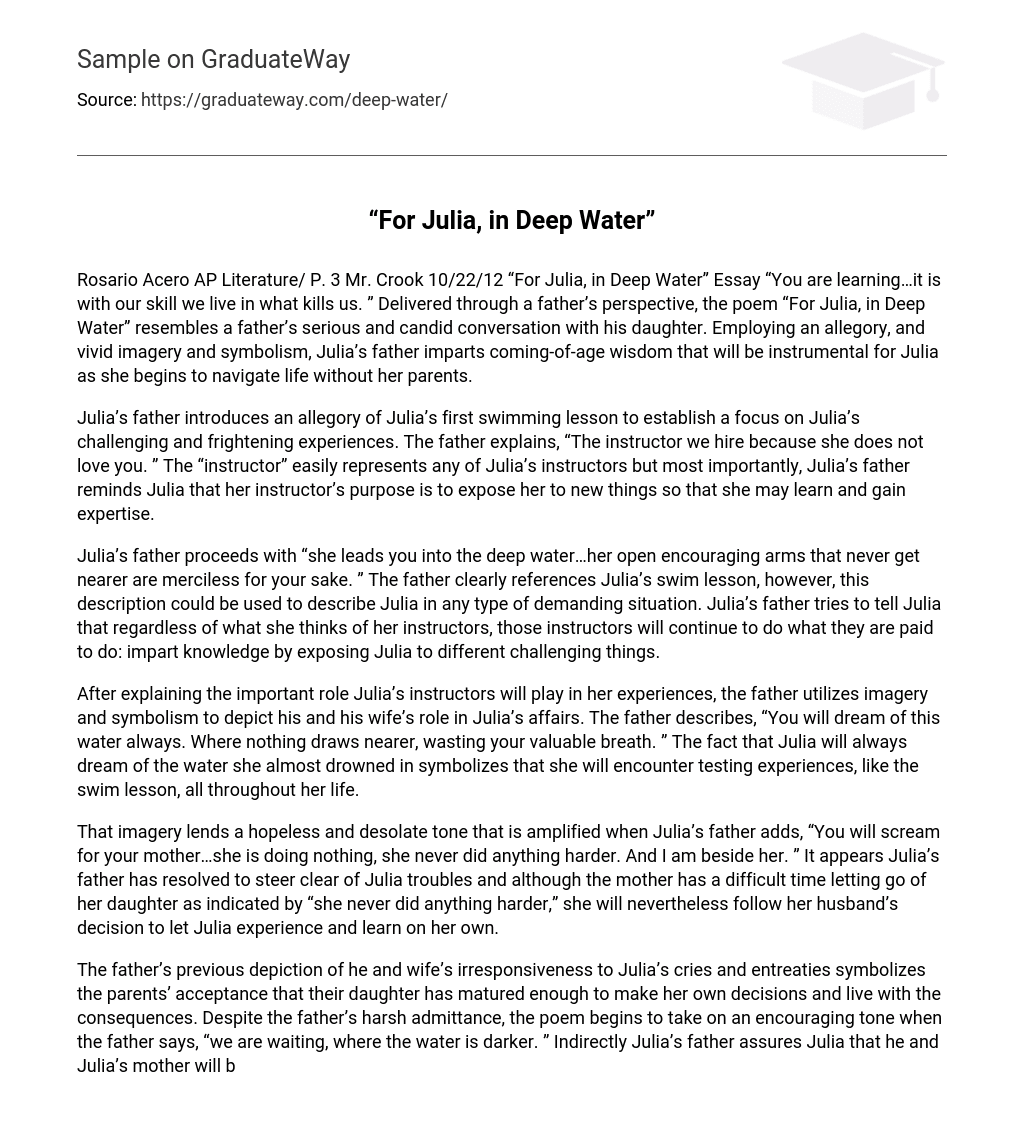Delivered through a father’s perspective, the poem “For Julia, in Deep Water” resembles a father’s serious and candid conversation with his daughter. Employing an allegory, and vivid imagery and symbolism, Julia’s father imparts coming-of-age wisdom that will be instrumental for Julia as she begins to navigate life without her parents.
Julia’s father introduces an allegory of Julia’s first swimming lesson to establish a focus on Julia’s challenging and frightening experiences. The father explains, “The instructor we hire because she does not love you. ” The “instructor” easily represents any of Julia’s instructors but most importantly, Julia’s father reminds Julia that her instructor’s purpose is to expose her to new things so that she may learn and gain expertise.
Julia’s father proceeds with “she leads you into the deep water…her open encouraging arms that never get nearer are merciless for your sake. ” The father clearly references Julia’s swim lesson, however, this description could be used to describe Julia in any type of demanding situation. Julia’s father tries to tell Julia that regardless of what she thinks of her instructors, those instructors will continue to do what they are paid to do: impart knowledge by exposing Julia to different challenging things.
After explaining the important role Julia’s instructors will play in her experiences, the father utilizes imagery and symbolism to depict his and his wife’s role in Julia’s affairs. The father describes, “You will dream of this water always. Where nothing draws nearer, wasting your valuable breath. ” The fact that Julia will always dream of the water she almost drowned in symbolizes that she will encounter testing experiences, like the swim lesson, all throughout her life.
That imagery lends a hopeless and desolate tone that is amplified when Julia’s father adds, “You will scream for your mother…she is doing nothing, she never did anything harder. And I am beside her. ” It appears Julia’s father has resolved to steer clear of Julia troubles and although the mother has a difficult time letting go of her daughter as indicated by “she never did anything harder,” she will nevertheless follow her husband’s decision to let Julia experience and learn on her own.
The father’s previous depiction of he and wife’s irresponsiveness to Julia’s cries and entreaties symbolizes the parents’ acceptance that their daughter has matured enough to make her own decisions and live with the consequences. Despite the father’s harsh admittance, the poem begins to take on an encouraging tone when the father says, “we are waiting, where the water is darker. ” Indirectly Julia’s father assures Julia that he and Julia’s mother will be waiting and rooting for Julia even though Julia may not physically see or feel their support.
After giving Julia some hope, the narrator strives to leave a meaningful impression on his daughter by delivering his most profound piece of advice at the end: “it is with our skill we live in what kills us. ” Julia’s father indicates Julia must acquire the expertise from experiencing life’s exigent and troubling moments in order live and overcome life’s trials without her parents.





